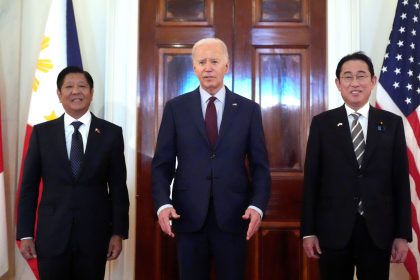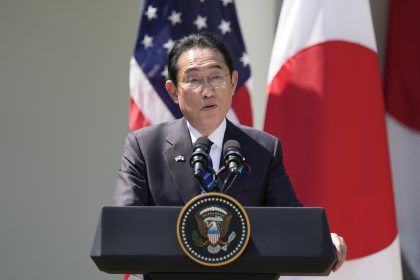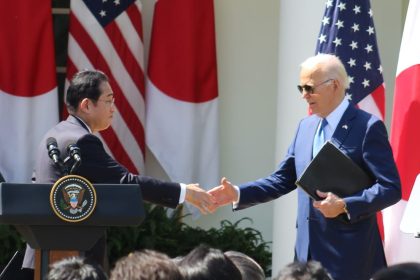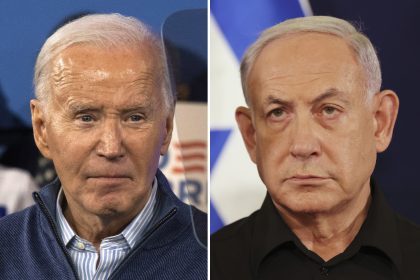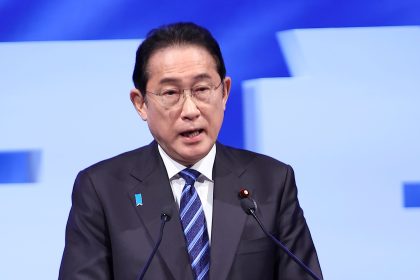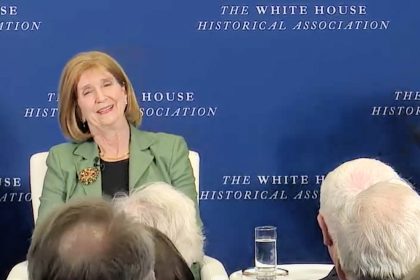Biden, UK Prime Minister Unveil ‘Atlantic Declaration’ to Bolster Economic Ties
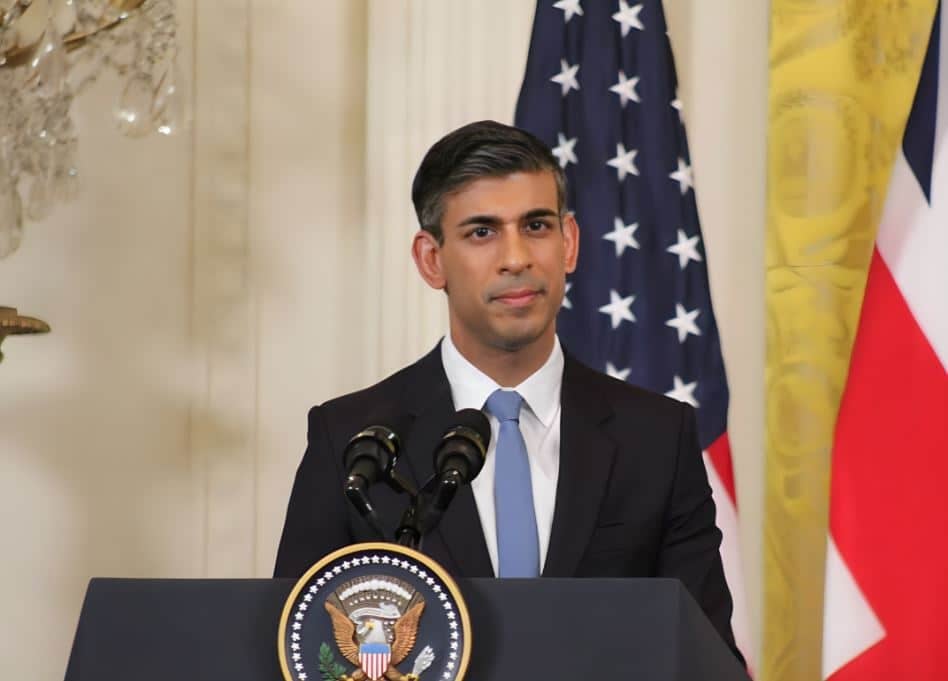
WASHINGTON — President Joe Biden and United Kingdom Prime Minister Rishi Sunak on Thursday signed a new economic framework, dubbed the “Atlantic Declaration,” which both said would renew the historic ties between the two nations, while bringing them forward into the 21st century.
“It is a … partnership for a new age, of a kind that has never been agreed to before,” Sunak said as the two leaders participated in a joint press conference in the East Room of the White House.
“Yes, it is a partnership that protects our citizens, but more than that, it is a test case for … reimagined alliances,” he said.
The declaration outlines the shape of future partnerships on everything from artificial intelligence, critical minerals and defense, to reducing trade barriers and removing China from its decades-old central position in the global supply chain.
It also includes a new, secure data bridge between the U.S. and the U.K. to help cut red tape for small businesses.
“And that means new investment,” Sunak said. “This week alone, £14 billion (about $17.6 billion) has been committed to the U.K., creating thousands of jobs.”
“It also means stronger supply chains with a new action plan on clean energy, reducing trade barriers related to the technologies of the future, and includes an agreement to work toward mutual recognition of more professional qualifications in areas like engineering,” the prime minister said.
“The bottom line here for me is that I think the world is changing, [but] globalization is still real,” Biden said.
“In the United States, in both Republican and Democratic administrations, we used to rely on trickle-down economics. We’d look to the neighbor who had the cheapest labor and then they’d send back the products here for sale.
“Well, I’m not doing that anymore,” the president said. “We are going to build up our manufacturing capacity here in the United States and send our products overseas.”
“I know it sounds simplistic, but it’s working so far,” Biden added. “And it’s not going to hurt any of our allies or friends.”
Biden also went to lengths to endorse Sunak’s well-known effort to lead the world in the regulation of artificial intelligence. In fact, the U.K. is slated to host the first global summit on AI this autumn.
“We are looking to Great Britain to help lead a way through this,” Biden said. “There is no country we have greater faith in to help negotiate our way through this.” He added: “We are in lockstep.”
Speaking directly to the future of artificial intelligence, Biden said as a technology, it represents “limitless capacity and possibility.”
“But we have to do it with great care … because when I convened the leaders in AI — I think there were 13 in all — here in the United States, the very architects of this technology … they were all very concerned about it getting out-of-hand.
“So, we’ve got to make sure we’re all on the same page and we’re looking to Great Britain to lead that effort this fall in putting together a proposal … that we, as a group of nations, can use to deal with this,” the president said.
“[Artificial intelligence] has the potential to cure cancer and to do many other things that are just beyond our comprehension, but it also has the potential to do great damage if it is not controlled,” Biden continued.
“Look, let me back up and say it this way,” the president said. “I don’t think ever in the history of human endeavor has there been the potential for such a fundamental technological change as presented by artificial intelligence. It is staggering.
“But there’s a lot we have to do,” he continued. “And … well, I’ll overstate it: We’re looking for watermarks on everything that has to do with it — ‘Produced by AI’ — so we know from whence it comes.”
Biden said the United States and international partners like the U.K. are also taking steps to address the national security risk posed by certain types of outbound investments in technology.
“I had a discussion with President Xi Jinping of China during which he asked why I wasn’t transferring certain technological capabilities. And I said, very simply, ‘Because you’re using them for weapons of mass destruction and intelligence intervention.’ And I said, ‘If we can work out something on that, we’d have a very different relationship.’”
Despite some friction between the U.S. and the U.K. in regard to trade since the U.K. exited the European Union in January 2020, Biden and Sunak said they’ve launched negotiations on a critical minerals agreement that could allow electric vehicle minerals produced in Britain to count towards tax credits under the Inflation Reduction Act.
Biden is expected to travel to the U.K. in July as part of his trip to the upcoming NATO summit in Vilnius, Lithuania. Reports out of Britain say he’s accepted an invitation from King Charles, but details are still being worked out for when and what the president will do during his visit.
Dan can be reached at [email protected] and at https://twitter.com/DanMcCue
















